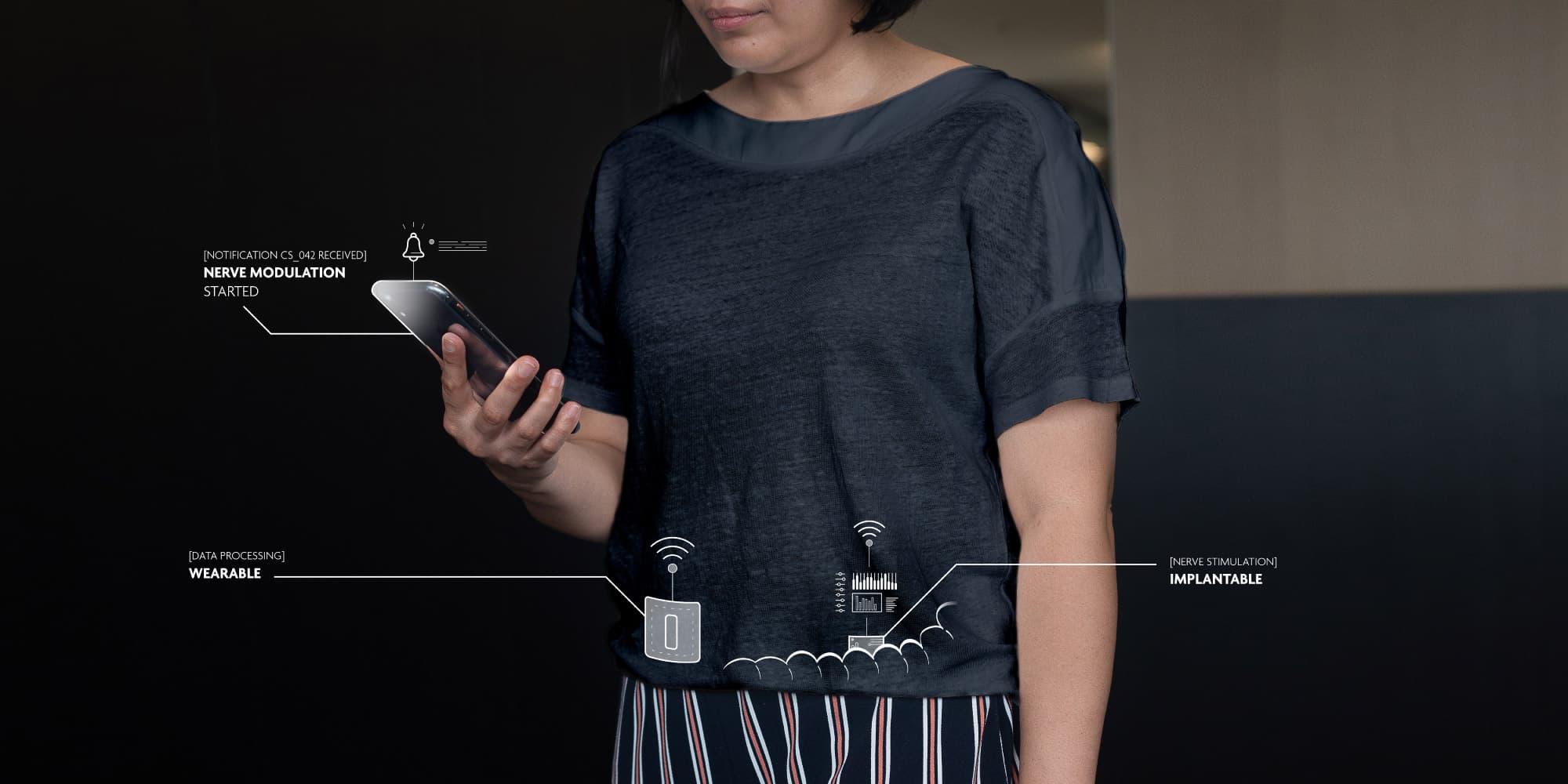
Technologies for gastroenterology and precision nutrition
Join imec’s research into non-contact and ingestible technologies to gain insight into digestive processes and enable personalized diets.
You are what you eat. That age-old expression rings as true as ever. The more we learn about our gastro-intestinal system – and the microbial guests that reside there – the more we realize its importance for our physical and mental well-being.
Still, there's a lot that we don’t know. Most importantly: how our diet interacts with our digestive system, which differs from one person to another.
We need that knowledge to cure or control various gastroenterological disorders. And to develop personalized diets that allow everyone to eat exactly what he or she needs to stay healthy and fit.
Unfortunately, assessing the functioning of our metabolism by analyzing urine or stool samples is too cumbersome to allow more than occasional checks. And a look inside our digestive system still calls for invasive techniques such as endoscopy. That hampers both gastroenterological research and the development of applications that enable people to optimize their diet.
With a wide portfolio of unobtrusive sensing technologies and advanced research into ingestible sensors, imec can help to increase gastroenterological knowledge and bring us closer to precision nutrition applications.
This line of research is primarily developed within the OnePlanet Research Centre.
Harvesting data to inform nutritional choices
In many ways, our diet has an immediate effect on our metabolism. Clearly, offering nutritional advice based on once-in-a-year health checks is not the best way to go.
A better way is to integrate unobtrusive sensing technologies in our daily environment. These technologies can monitor vital signs or measure the composition of bodily fluids. After combination and analysis of the data, the user can be presented with nutritional advice – closing the feedback loop.
One example of such an integration of imec’s technological building blocks could be a smart toilet that measures:
- the conductivity of urine – a good indicator of your fluid balance – and other parameters using an on-chip liquid sensor
- other health aspects such as heart rate through capacitive sensors in the seat
The result would be a valuable health check, and immediately actionable nutritional advice, several times a day.
Ingestible sensors
There’s only so much that external health parameters can reveal about the health of our digestive system and diet. But looking inside the gastro-intestinal tract is still an expensive and uncomfortable procedure.
Imec is working on next-generation ingestible sensors that can measure various biochemical parameters such as electrolyte balance, hormones, bacteria, ...
Our goal is to develop ‘smart pills’ that can be used for:
- gastroenterological research
- clinical diagnosis of digestive disorders, for instance by identifying inflammation markers
- informing dietary choices, for instance by measuring short-chain fatty acids as indicators of fiber intake
For the development of these ingestibles, we rely on our extensive knowledge of miniaturization of (bio-)electronics, microfluidics, medical transducers and read-out electronics, wireless communication and powering.
Imec's ingestible technology to track gut health was demonstrated at Future Summits 2020:
Moreover, we work closely with clinical partners to develop and validate our research strategy.
Read this article about imec’s vision on ingestible sensing technology.
Are you interested in joining our research program? Our do you want to enter into an exclusive partnership with imec for the development of your solution?












